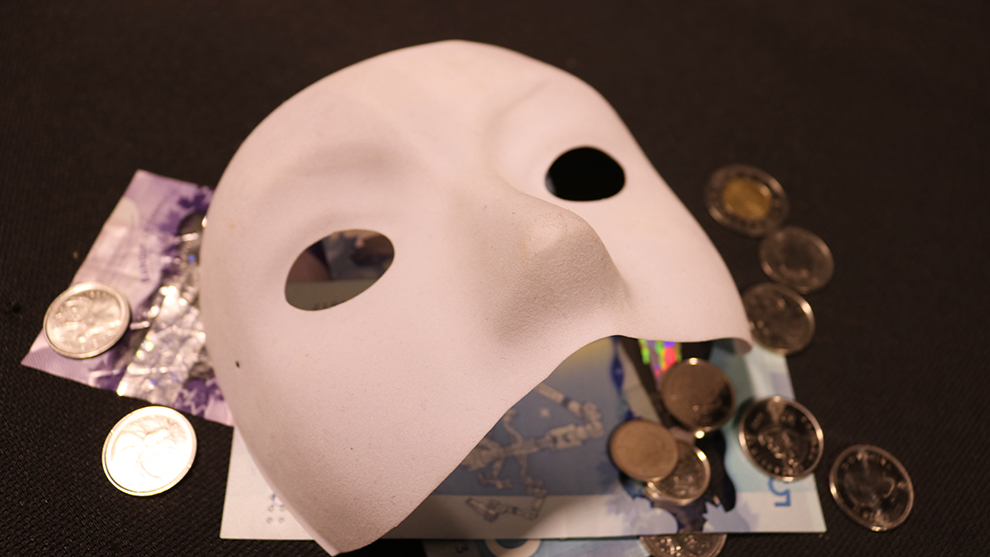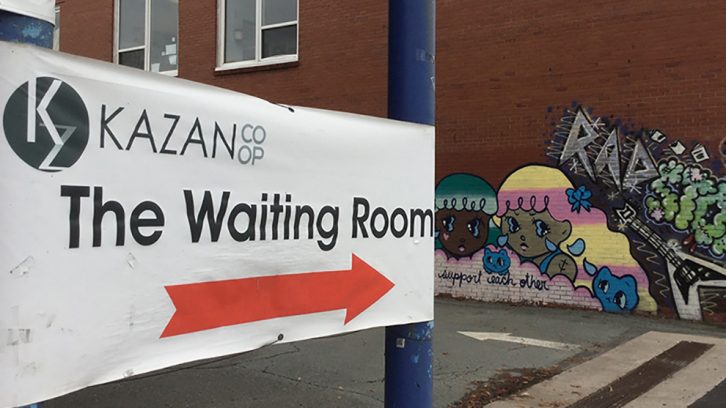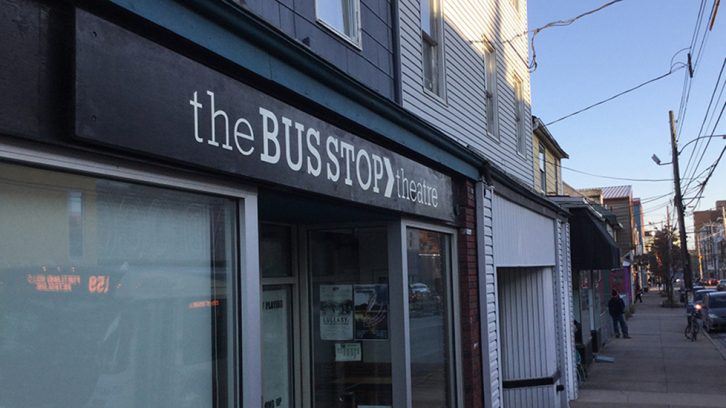Arts
Halifax’s emerging theatre scene struggles to find funding
Growing theatre community looks for space in a small funding pool


caption
The Waiting Room theatre on Almon Street opened three years ago.An increase in municipal grant funding could not come sooner for the Waiting Room theatre and other arts groups in Halifax.
Kathryn MacLellan founded the Waiting Room with her sister Janet three years ago. It’s used by both emerging and established artists who need performance space. MacLellan has been repeatably rejected for funding through the Halifax Regional Municipality’s interim professional arts grant program, but will continue to apply in order to keep the venue open.
“I’ve written grants for three years to the city and still don’t have operational funding,” said MacLellan, who also founded the Kazan Theatre co-op eight years ago.
“I’m getting burned out, frankly. I think a lot of arts administrators get burned out when they’re not getting paid, and I don’t know how much longer we can do that.”
Operational grant money provides funding for recurring administrative expenses, including booking clients, paying bills and cleaning. MacLellan currently relies on a small portion of revenue through bookings to keep the lights on.

caption
The debut of Princess Rules at the Waiting Room in November.A share of the funds
The interim professional arts grant program has been in place for three years. In 2015-16, $360,000 in funding supported local dance, music, visual art and theatre organizations.
From the $360,000 pot, $265,500 was used for operations funding. The remaining $94,500 was distributed in project grants, which help cover costs associated with one-off projects like a single show, recital, painting or album.
In that fiscal year, 20 grant applications were approved with 21 per cent of the $360,000 going to Neptune Theatre and Symphony Nova Scotia.
This year, both Neptune and Symphony received 18 per cent of the funding, while the number of application approvals increased to 28. The 2017-18 round of funding was distributed by a peer jury, unlike in previous years where a single HRM staffer made recommendations to regional council.

caption
Brendan AhernSebastien Labelle, executive director of the Bus Stop Theatre Cooperative, said the new distribution method is helping more groups.
“It was recognized by the jury that new organizations are really struggling because there’s no funding, so (in order) to spread the wealth there’s been decreases at certain levels,” he said.
The Bus Stop Theatre has been operating for 15 years. In 2015-16 it received $4,000, but asked for $10,000. This year it asked for $12,000 and received $6,000.
Under the funding distribution guidelines, organizations must be registered non-profits operating continuously and successfully for at least three years.
As Halifax’s arts community grows, there will, potentially, be other groups vying for the same amount of money. Labelle recognizes this is particularly difficult for new arts organizations.

caption
Bus Stop Theatre on Gottingen Street has been running for 15 years.“There’s a really hard plateau where emerging artists are stopping and there’s nowhere to grow,” he said.
Karen Gross, artistic co-director of the Keep Good (Theatre) Company, said when it comes to arts funding, she often looks outside the municipality.
“I haven’t felt like the city has really been oriented around supporting indie theatre companies,” said Gross. “Things are actually quite exciting at the federal level right now because the Canada Council just had their funding doubled a year ago. So there’s suddenly lots of possibilities that weren’t there before, like pathways for smaller organizations to grow.”
Room to grow
And regional council may be following suit.
While on the campaign trail in 2016, Mayor Mike Savage promised to more than double the existing $360,000 in arts funding.
“The mayor committed $1 million by 2020, which means that in this budget we’ll have to start incrementally increasing it this year,” said deputy mayor Waye Mason, who added that local arts groups still need to go through the peer-approved application process.
“It doesn’t mean that everyone is going to survive forever; there’s still going to be a give and take.”
An increase in funding would be “great news” for MacLellan, who will be applying for a fourth time next year.
“It’s all part of a city’s growth,” said MacLellan. “We have a lot going for us here in Halifax and I think that the arts need to be a part of the fabric of the city.”

